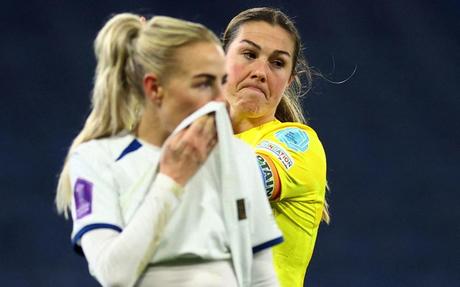
There will be no Team GB squad involved in the Olympic women's football competition in Paris next summer, meaning the women's game will miss out on an important opportunity for prominence, and that's because England - who were named responsible for qualifying on behalf of Great Britain - succeeded failed to win in their Nations League group. Fans are wondering: where did it go wrong?
We must not forget that it is extremely difficult to qualify as a European women's team for the Olympic Games, as only twelve teams will participate next summer, compared to sixteen men's teams, and therefore only two European teams will join host nation France. Sweden, which finished third at the World Cup behind England and Spain, will also not be involved. Only Germany, the Netherlands and world champion Spain remain in the battle for the two places, after the Dutch scored twice in injury time on Tuesday evening and guided England to the top of Nations League Group A1 on goal difference on Tuesday evening.
It was a cruel way to miss the defeat by the narrowest of margins, but England will still look back and reflect that this was a missed opportunity, and that lessons must be learned from their campaign. This was a campaign that was not simply undone on a night of drama in Glasgow - on the contrary, England were fantastic at Hampden Park - but the damage was done much earlier in a difficult autumn period.
Individual defensive mistakes
Firstly, England need to look inward and recognize that their defense - especially in the 3-2 defeat in Belgium - was not at the level their fans have come to expect.
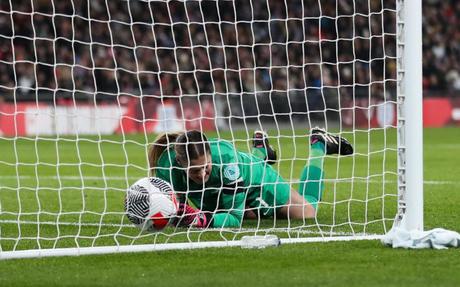
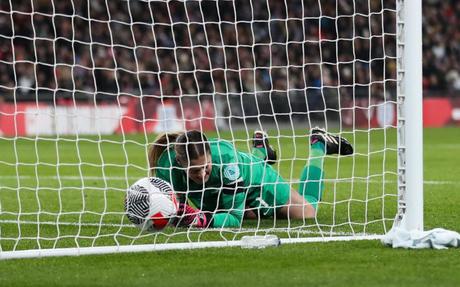
Even in their opening win over Scotland and Friday's comeback victory at Wembley over the Netherlands - where Jess Carter and Mary Earps were to blame for conceding soft goals - but especially in Leuven in October, it was all too easy for opponents to to catch the ball. behind the England backline, which became a consistent theme across the first five games of the campaign.
A large part of this can be attributed to the absence of first-choice defenders due to injuries, but nevertheless the team needs to strengthen at the back and return to their strong level in 2024.
The story continues
Big opportunities missed
At the other end of the pitch, with the exception of Tuesday's defeat in Glasgow, England's finishing has also been somewhat worrying, and in a group where just one goal scored would have made the difference, every chance spurned is now in front of goal has extra meaning, no matter how harsh that may sound.
Arsenal striker Alessia Russo - a star at England's World Cup and scoring in the quarter-final and semi-final - has scored just once this season, while Aston Villa's number nine Rachel Daly has failed to score a goal in the Nations League. Both will be disappointed with these returns, due to their high standards.
As a team, the Lionesses missed a slew of chances in the first half of their 1-0 home win over Belgium in Leicester in October and that waste is now coming back to haunt them. Even on Tuesday evening, Lauren Hemp's inexplicable miss when she hit the post in the first half, despite her good all-round performance, also proved costly.
Lack of video assistant referees
Likewise, on the principle that every single goal has counted so much in this Nations League group, England may feel indignant at having been on the wrong side of questionable refereeing decisions in multiple matches in their campaign, one of which was swinging. the goal difference in total.
In England's opener, Lauren James had a late goal wrongly ruled out for offside, replays showed, while England felt Daly's early header, which was also ruled out for offside, should also have stood. For balance, in the same match it is fair to say that the Lionesses were also very fortunate not to be awarded a penalty for a flagrant foul on Millie Bright's Martha Thomas. Var is not active in these women's internationals.
The controversy was greatest in Utrecht, where England suffered a crucial 2-1 defeat to the Netherlands, and replays suggested that the Dutch first goal should not have stood as Danielle van de Donk was offside in the build-up. At Wembley on Friday, there was also offside surrounding the Dutch team's second goal, while their opening goal - albeit determined by a late defense from England - technically came from a Dutch move that started with a goal kick when it should have been a corner kick promised. .
In themselves, all these incidents are simply part of the sport. Civil servants make mistakes, they are human. But it won't ease the frustration of England and Team GB fans.
Injuries to key players
Speaking of frustration, England have also been hampered by injuries to key players, not least the lengthy absence of influential captain Leah Williamson, and fellow centre-back Bright's knee injury, which saw her miss December's matches. Their absence was painfully felt, especially in the first half at Wembley. And a lot of the defensive errors we saw in the defeat to Belgium in October only came after centre-back Alex Greenwood was withdrawn due to concussion.
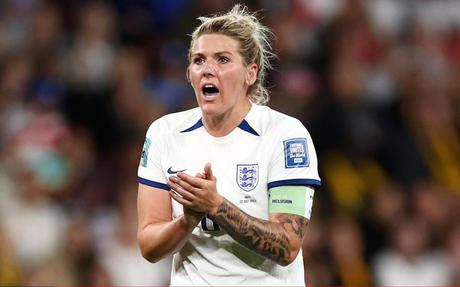
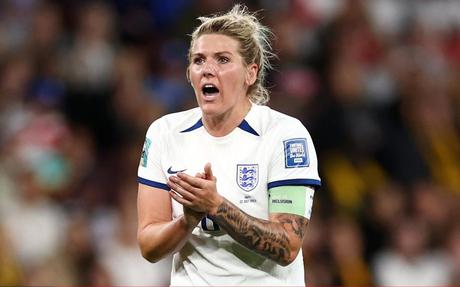
In fact, Beth Mead's classy performance at Hampden Park showed how much England have missed the Arsenal striker in her 12 months away. Any team in the world would miss a player of Mead's caliber.
Nevertheless, England should still have had enough strength in depth to get the job done.
But there is a silver lining...
Fatigue also played a role, especially in the September camp, with England back together less than a month after the World Cup final, with some players having just six days off afterwards. After moving quite quickly from last season's club campaign to World Cup training camp, this is a team that didn't get a break in the offseason this year.
Many players lamented that tight schedule when speaking at camp in September, appearing mentally and physically exhausted. Sarina Wiegman herself expressed her concerns about the calendar and said: "Players are not robots".
For that reason, there may be a silver lining to not qualifying for Paris. It may not feel like it now for England's devastated players, but it could be a blessing in disguise for them to catch their breath next summer and boost their chances of success at Euro 2025, where they will attempt to regain their European title to defend. .
When asked if there were any advantages to not qualifying for the Olympics, Wiegman disagreed, saying: "Well, you want to go to every major tournament. The career of a footballer is [only] a certain amount of time, so if you can play every major tournament, of course every player wants that. In the bigger picture we have to look at the calendar, and the players are not robots. And they need some rest too. That's very clear. But instead of a tournament? That goes a bit too far for me."
As understandable as Wiegman's thought process may be, if England had qualified, some of their players would have experienced five consecutive summers of major tournaments: the postponed Tokyo Olympics in 2021, the 2022 European Championship, this summer's World Cup, Paris in 2024 and then in 2025. Euros in Switzerland, alarm bells ringing about injury risks.
No England player or staff will have wanted it this way, and they should all be aiming for better results and tighter defense in their Euro qualifiers, but perhaps a break is what they all need most.
